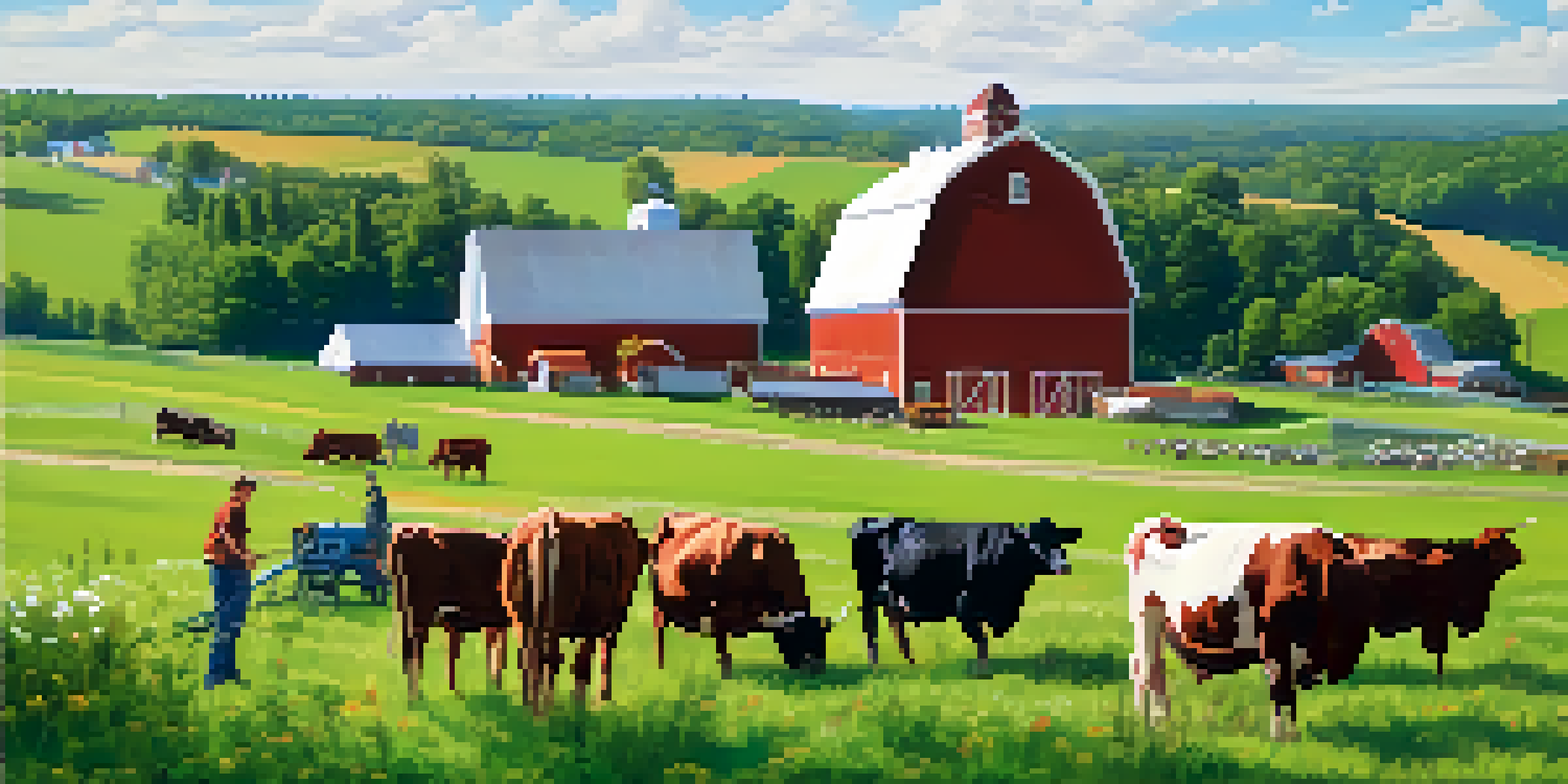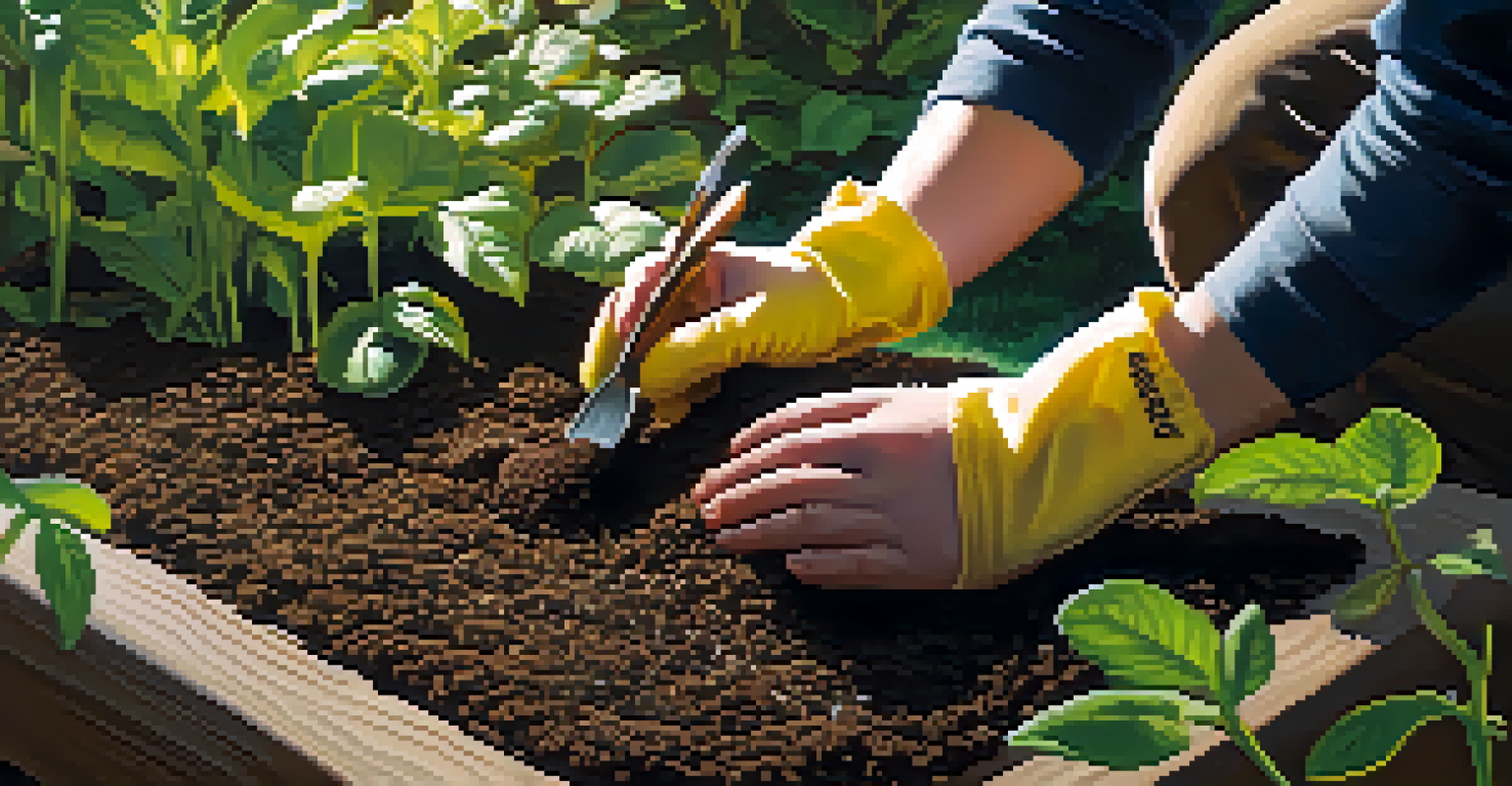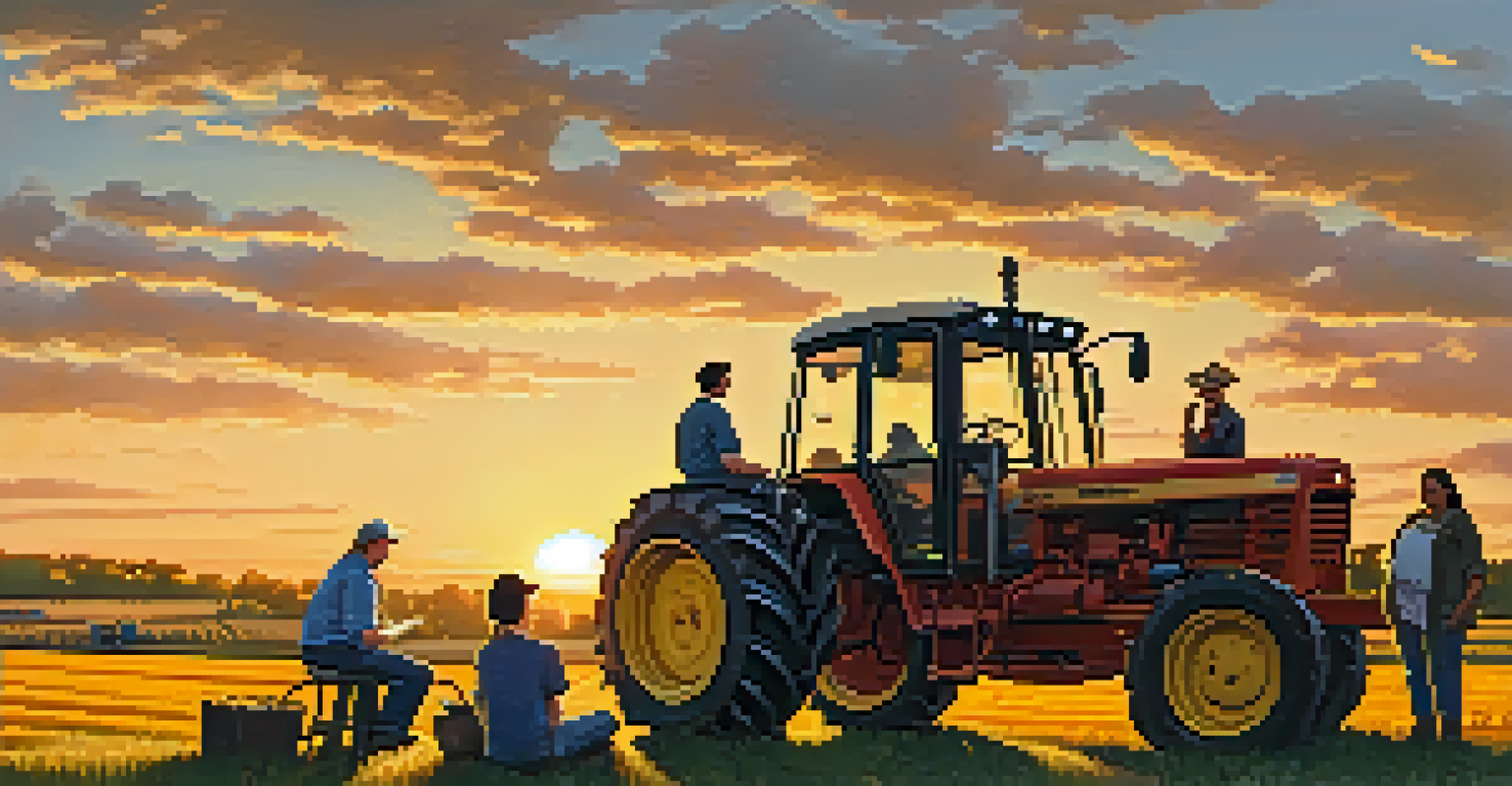Education Initiatives at MSU for Future Farmers

Introduction to MSU's Commitment to Future Farmers
Michigan State University (MSU) has long been a beacon for agricultural education, focusing on equipping future farmers with the necessary skills and knowledge. Through a combination of hands-on experience, research opportunities, and expert mentorship, MSU is committed to developing the next generation of leaders in agriculture. This commitment is reflected in various innovative programs designed to create a sustainable and productive farming community.
The farmer is the one who has to face the storm, but the university prepares them to weather it.
The university recognizes the challenges facing modern agriculture, from climate change to food security, and aims to prepare its students to tackle these issues head-on. By fostering a learning environment that encourages critical thinking and practical application, MSU prepares students not only to succeed but to innovate within the agricultural sector. This article delves into the diverse educational initiatives MSU offers for aspiring farmers.
Whether you're a high school student interested in agriculture or a professional looking to enhance your skills, MSU provides pathways for all to engage with and contribute to the farming community.
Hands-On Learning: Farm Programs and Internships
One of the standout features of MSU's agricultural education is its emphasis on hands-on learning through farm programs and internships. These initiatives allow students to immerse themselves in real-world farming environments, gaining invaluable experience that can't be replicated in a classroom. By working directly on the university's farms or partnering with local farms, students learn the ins and outs of sustainable agriculture practices.

Internships also play a critical role in this learning process, providing students with opportunities to apply their knowledge in professional settings. These experiences help students build connections in the agricultural industry while enhancing their resumes. Additionally, the practical skills they acquire through these programs often set them apart in the job market.
Hands-On Learning for Future Farmers
MSU emphasizes practical experience through farm programs and internships, preparing students for real-world agricultural challenges.
Ultimately, these hands-on learning experiences ensure that MSU graduates are not just knowledgeable, but also well-prepared for the challenges they will face in their farming careers.
Innovative Research Opportunities for Students
Research is a cornerstone of MSU's agricultural program, enabling students to engage in cutting-edge studies that address pressing issues in farming. Students have the opportunity to work alongside faculty members on research projects that explore everything from crop genetics to sustainable pest management. This collaboration fosters a deeper understanding of agricultural science and its practical applications.
Sustainable agriculture is an essential part of a healthy community and ecosystem.
Through these research initiatives, students can contribute to advancements in agricultural technology and practices, potentially leading to breakthroughs that benefit the wider farming community. Moreover, participating in research helps students develop critical thinking and problem-solving skills, which are essential in any agriculture-related career.
By integrating research into the educational experience, MSU not only enhances student learning but also contributes to the overall advancement of the agricultural sector.
Mentorship Programs: Learning from Experienced Farmers
MSU places a strong emphasis on mentorship, connecting students with experienced farmers and industry professionals who can provide guidance and support. These mentorship programs are invaluable for students, as they offer insights into the realities of running a farm and navigating the agricultural landscape. This relationship often leads to lasting connections that can open doors for future career opportunities.
Mentors share their experiences, challenges, and successes, giving students a nuanced understanding of the agricultural industry. This firsthand knowledge helps students make informed decisions about their futures in farming, whether they aspire to start their own farm or work in agricultural policy.
Mentorship Enhances Student Growth
The university connects students with experienced farmers, providing invaluable insights and fostering industry connections.
Ultimately, these mentorship initiatives not only enhance the educational experience but also build a strong sense of community and support among future farmers.
Sustainable Agriculture: A Core Focus of MSU's Curriculum
Sustainability is a key focus within MSU’s agricultural curriculum, reflecting the growing importance of environmentally friendly farming practices. Students learn about sustainable agriculture techniques that promote ecological balance while ensuring productivity. This includes topics such as crop rotation, soil health, and organic farming methods, which are essential for the future of food production.
By prioritizing sustainability, MSU prepares its students to become responsible stewards of the land, ensuring that future generations can continue to farm effectively. The university also encourages students to engage in discussions around food systems, climate change, and conservation, fostering a holistic understanding of agriculture's impact on the planet.
This commitment to sustainability not only shapes the curriculum but also instills a sense of responsibility in students as they prepare to enter the farming profession.
Community Engagement: Connecting Students with Local Farmers
MSU believes in the importance of community engagement, connecting students with local farmers to foster collaboration and knowledge sharing. Through various outreach programs, students have the opportunity to work with community members, gaining insights into local agricultural practices and challenges. This interaction enriches the educational experience and helps students understand the broader context of farming.
Additionally, these engagements allow students to contribute positively to their communities while learning about the importance of local food systems. By supporting local farms and participating in community events, students develop a sense of responsibility and connection to the agricultural landscape around them.
Focus on Sustainable Agriculture
Sustainability is a core aspect of MSU's curriculum, equipping students with eco-friendly farming practices for a sustainable future.
Ultimately, this community engagement not only benefits students but also strengthens the ties between MSU and local agricultural communities.
Future Outlook: Preparing Students for the Evolving Agriculture Sector
As the agricultural sector continues to evolve, MSU is dedicated to preparing students for the future of farming. The university continuously updates its curriculum to reflect the latest trends and technologies in agriculture, ensuring that graduates are equipped with relevant knowledge and skills. This adaptability is crucial in a rapidly changing industry, where innovation plays an essential role in success.
Moreover, MSU encourages students to think critically about the future of farming, emphasizing the importance of adaptability and lifelong learning. By fostering a mindset geared towards innovation, the university prepares students to not only meet current challenges but also to anticipate and address future issues.

In this way, MSU stands at the forefront of agricultural education, committed to developing leaders who will shape the future of farming.